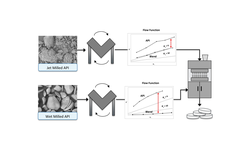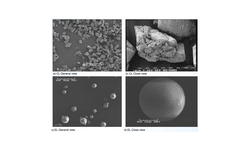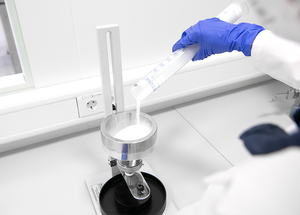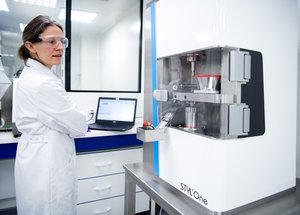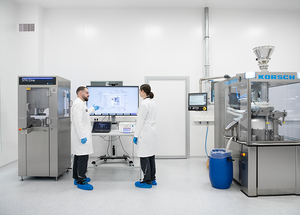Scientific papers
In the course of tablet manufacturing, an elevation in production temperature can result in changes to tablet characteristics. This study explores the impact of the initial particle size on the tableting behavior of ductile polymers as the temperature increases. Various grades of the respective materials were compressed at temperatures ranging from 22 to 70 °C.
Modifications in tableting behavior were observed in relation to the initial particle size. Smaller particle sizes led to a more significant reduction in yield pressure and net work of compaction during compressibility analysis. These findings were corroborated in tabletability studies, where tablets from binary mixtures containing smaller polymer particles exhibited a more substantial increase in tensile strength. Variances in tensile strength increase between two grades of the same material correlated with the ratio of their median particle sizes. The alteration of compactibility profiles also depended on particle size, with a more notable increase in solid fraction observed for binary mixtures containing polymers with smaller particle sizes. However, the ratio of the median particle sizes of the compared grades did not exhibit a systematic effect.
These results underscore the importance of meticulously controlling the structural properties of a material during formulation development and production. In cases where a formulation responds to temperature variations, an increase in particle size may prove beneficial to mitigate its sensitivity to heat.
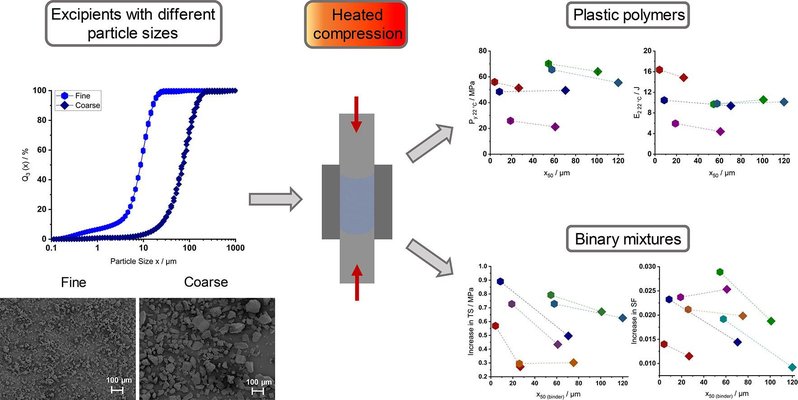
Comments
No comments posted yet.
Add a comment


